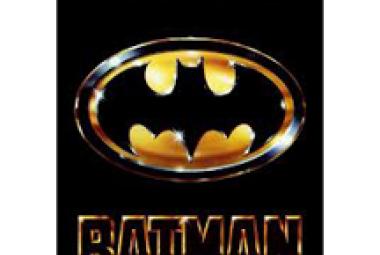Pink Floyd was an English rock band formed in London that was founded in 1965 by students Syd Barrett, Nick Mason, Roger Waters, and Richard Wright. David Gilmour joined as a fifth member in December 1967. Waters became the band’s primary lyricist and, by the mid-1970’s, their dominant songwriter, devising the concepts behind their critically and commercially successful albums The Dark Side of the Moon (1973), Wish You Were Here (1975), Animals (1977), The Wall (1979), and The Final Cut (1983). By 2013, the band had sold more than 250 million records worldwide. (More from Wikipedia)
The concert event The Wall – Live in Berlin, a July 1990 performance of the 1980 Pink Floyd album The Wall took place at the site of the Berlin Wall that had come down eight months previously. The concert was organized by Roger Waters, who had been the frontman for the band during their hitmaking period in the 1970’s and early 1980’s, though he left Pink Floyd in 1985 over creative differences and attempted to prevent the other bandmembers from continuing to use the name (they settled out of court in 1987).
Roger Waters had said during an interview in July 1989 that the only way he would perform The Wall live again was “if the Berlin Wall came down” – and four months later, it did. Attendance at the concert site itself was a record-breaking 450,000, and it was also broadcast live worldwide. Scorpions opened the concert with “In the Flesh” and also performed on three other songs. Guest artists included Cyndi Lauper, Marianne Faithfull, Thomas Dolby, Sinéad O’Connor, Joni Mitchell, Van Morrison, Bryan Adams, and Levon Helm and Garth Hudson of the Band. Tim Curry, Albert Finney, Ute Lemper, and Jerry Hall are actors who also performed, mostly during “the Trial” sequence toward the end. As the concert was performed, a gigantic wall (550 feet long and 82 feet high) that appeared to be made of large styrofoam blocks was completed; at the end of the trial, the judge declared: “Tear down the Wall!”, and the wall was pushed over, row by row.
* * *
Meic Stevens is a national hero in Wales who began writing and recording songs in 1967 in the Welsh language in an attempt to create a body of pop music for the nation. He is often referred to as “the Welsh Dylan” and is also compared with Syd Barrett, the original frontman for Pink Floyd and the mastermind behind their debut album and one of the great albums of British rock, The Piper at the Gates of Dawn.
(April 2013)
* * *
I have had the idea for a “might-have-been” post about rock and roll for most of the year; this is a mistake that I will not make again, I assure you! I had no conception that the post would be this gargantuan when I started out, and this is likely due in no small part to having thought it through for several months. There are several other examples that I had intended to include – the troubled life of the original frontman for Pink Floyd, Syd Barrett, and the San Francisco psychedelic band It’s a Beautiful Day that had a gorgeous hit in 1969, “White Bird” – plus others that have no doubt slipped my mind. In the future, when I have a lot to say about a particular rocker, I will take them one at a time – as I did with the long discussion on Link Wray’s classic instrumental “Rumble” in the UARB post on Link Protrudi & the Jaymen.
(June 2013/2)
* * *
The Klubs returned to Liverpool and took part in the Kaleidoscope ’68 festival there alongside big names like Pink Floyd and the Move (a leading 1960’s British band that took the name the Electric Light Orchestra in 1972). According to an article in the Liverpool Echo, however, the Klubs “stole the whole show . . . with painted faces and setting off fireworks that stunned the whole audience”. The response was so overwhelming that the Klubs were brought back for a second appearance the next day.
(July 2013)
* * *
All I knew about Vera Lynn, an enormously popular English singer during World War II was the reference to her in the song “Vera” from the 1979 Pink Floyd album, The Wall. Thus, I was astounded (along with the rest of the world, I think including Vera Lynn herself) when a retrospective of her work that was released in 2009, We’ll Meet Again: The Very Best of Vera Lynn reached the top of the British charts. At age 92, she is the oldest person ever to achieve that feat in Great Britain.
(October 2013)
* * *
The manager of Chimera (and possibly the producer for at least some of the recording sessions) is none other than Nick Mason, the drummer for Pink Floyd and the only bandmember who has appeared on all of the PF albums. Mason also sat in as drummer on “The Grail”. His bandmate in Pink Floyd, Richard Wright played keyboards on “Lady with Bullets in Her Hair”. Even one of Pink Floyd’s roadies, Alan Styles played saxophone on one track. Francesca Garnett and Lisa Bankoff had boldly gone backstage at a music festival where Pink Floyd was performing, introducing themselves to Nick Mason and telling him that they were songwriters.
(November 2013)
* * *
Mick Farren’s early writing was for one of the first underground newspapers, International Times (later called IT after threats of litigation by The Times of London); he wrote articles for the newspaper and also edited IT for a period of time. The newspaper was founded in November 1966 and was a mixture of rock music promotion, polemical journalism, and scandalous humor. The London police repeatedly raided the newspaper’s office in an attempt to shut them down; IT responded by hosting a benefit rock concert called The 14 Hour Technicolor Dream in April 1967 featuring Pink Floyd, the Pretty Things, Savoy Brown, the Crazy World of Arthur Brown, Soft Machine, and the Move.
On two of his albums, there is a short interview with Mick Farren at the UFO Club, a legendary London scene where some of the earliest psychedelic rock bands like Pink Floyd and Soft Machine held court; it was only open for about a year in 1966-1967. In the interview, Farren basically states that he is not a Marxist – he is simply stating that the society isn’t working, and that he is trying to create a world where “people can freely enjoy themselves”, but adds that “that is where the trouble started”.
Allmusic states the musical and historical importance of Ptooff! well in their entry by Dave Thompson: “Talk today about Britain’s psychedelic psyxties, and it’s the light whimsy of Syd Barrett’s Pink Floyd, the gentle introspection of the Village Green Kinks, Sgt. Pepper, and ‘My White Bicycle’ [by Tomorrow] which hog the headlines. People have forgotten there was an underbelly as well, a seething mass of discontent and rancor which would eventually produce the likes of Hawkwind, the Pink Fairies, and the Edgar Broughton Band. . . .
“But the deranged psilocybic rewrite of ‘Gloria’ which opens the album, ‘I’m Coming Home’, still sets a frightening scene, a world in which Top 40 pop itself is horribly skewed, and the sound of the Deviants grinding out their misshapen R&B classics is the last sound you will hear. Move on to ‘Garbage’, and though the Deviants’ debt to both period [Frank] Zappa and [the] Fugs is unmistakable, still there’s a purity to the paranoia.
“Ptooff! was conceived at a time when there genuinely was a generation gap, and hippies were a legitimate target for any right-wing bully boy with a policeman’s hat and a truncheon. IT and Oz, the two underground magazines which did most to support the Deviants ([Mick] Farren wrote for both), were both publicly busted during the band’s lifespan, and that fear permeates this disc; fear, and vicious defiance.”
* * *
Standout songs on Think Pink include “Ten Thousand Words in a Cardboard Box”, “The Coming of the Other One” and “The Sparrow Is a Sign”. Dean McFarlane in his Allmusic review also gives Think Pink four stars and writes: “Think Pink is an incredibly varied album with no two songs resembling each other, but then one assumes an acid masterpiece like ‘Ten Thousand Words in a Cardboard Box’ will stay on high rotation for at least a week on the stereos of most psychedelia fans, so overall album flow may not be such an issue. This is pure psychedelic acid rock of the highest order. If one can imagine a fusion of the Incredible String Band, Deviants, early Pink Floyd, and a fair dose of Twink’s heredity as a member of Tomorrow and the Pretty Things, you get an idea of what he was up to. Not known for doing things in halves, he shows little restraint in the assembly of a group designed to tear the roof off the psychedelic scene.”
While they never quite reached those heights again, their later albums explored Gordon Gano’s upbringing as the son of a Baptist minister. James Christopher Monger writes in Allmusic of their second album (released in 1984): “After the surprise success of their landmark debut, Violent Femmes could have just released another collection of teen-rage punk songs disguised as folk, and coasted into the modern rock spotlight alongside contemporaries like the Modern Lovers and Talking Heads. Instead they made Hallowed Ground, a hellfire-and-brimstone-beaten exorcism that both enraged and enthralled critics and fans alike. Like Roger Waters purging himself of the memories of his father’s death through [the Pink Floyd albums] The Wall and The Final Cut, bandleader Gordon Gano uses the record to expel his love/hate relationship with religion, and the results are alternately breathtaking and terrifying.”
(November 2014)
* * *
Jack Irons left Eleven after their second album to play drums for Pearl Jam but later returned to the band. Both Alain Johannes and Natasha Shneider were involved in Jack Irons’ solo album, Attention Dimension (2004); Shneider played electric bass and piano on “Hearing it Doubled” and keyboards on Jack Irons’ cover of the Pink Floyd song “Shine on, You Crazy Diamond”.
(April 2015/1)
* * *















